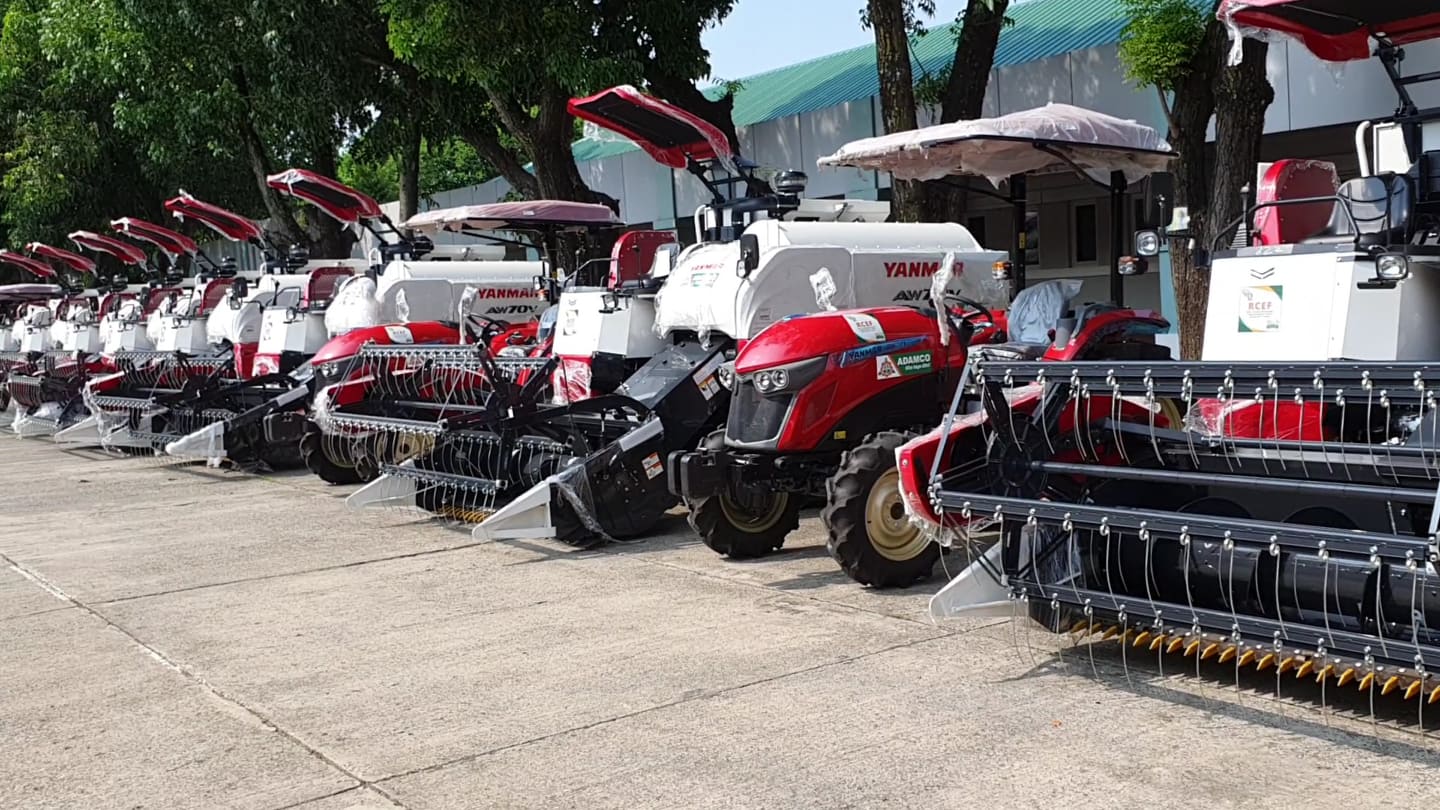
About 6,000 Nueva Ecija rice farmers received dozens of modern farm machinery from the Department of Agriculture’s Philippine Center for Postharvest Development and Mechanization (DA-PhilMech), on June 4, under the Rice Competitiveness Enhancement Fund (RCEF) mechanization component.
“We congratulate the farmer-leaders who, on behalf of their respective 36 farmers’ cooperatives and associations (FCAs), received 13 rice combine harvesters, a dozen four-wheel tractors, and two mechanical rice transplanters,” said Agriculture Secretary William Dar in his message via teleconference to recipients, DA-PhilMech officials and guests.
“We consider this a historic event, as we start our journey towards our goal of raising the productivity, cost-efficiency and competitiveness of our farmers and the country’s rice industry,” Secretary Dar added during a simple turnover ceremony, attended by DA-PhilMech Director Baldwin Jallorina, Nueva Ecija Governor Aurelio Umali and DA Region 3 Director Cris Bautista.
“From all indications, despite the birth pains, we are now seeing the initial benefits of the Rice Tariffication Law or RTL on our farmers and the country’s rice industry,” the DA chief said.
“Further, this occasion jumpstarts the process of a more sustainable distribution of farm machines to FCAs in 957 RCEF-covered municipalities all over the country,” he added.
The farm machinery allotted for Nueva Ecija forms part of the first tranche worth P2 Billion (B) of the total P5-B RCEF mechanization budget in 2019. The fund targets to procure the following farm machinery:
- 495 four-wheel tractors;
- 356 rice combine harvesters;
- 576 hand tractors;
- 103 rice reapers;
- 52 precision seeders
- 106 walk-behind transplanters;
- 118 riding-type transplanters;
- 347 floating tillers; and
- 46 rice mills.
The balance of P3 B under the 2019 budget is already being bidded out and thereafter distributed this year, Jallorina said.
“The Duterte administration through the DA will continue to innovate and harness the whole-of-nation approach to ensure that you, our farmers, get the much-needed support to withstand and surpass the many challenges of our rice industry and the agriculture sector, in general,” said Secretary Dar.
In the selection of beneficiaries, the DA-PhilMech has also adopted the farm clustering and consolidation strategy to achieve economies of scale that will pave the way to cost-efficient operations, higher crop productivity and bigger farmers’ incomes, the DA chief added.
“We will nurture the farm clustering and consolidation approach to optimize the use of government resources and focus our interventions for the benefit of targetted organized farmers and FCAs nationwide,” said Secretary Dar.
“With state-of-the-art machinery, we aim to propel a technology-based, market-driven, inclusive and resilient Philippine agriculture,” Dar added. “Ang mga makinarya na ipinamimigay ng pamahalaang Duterte ay bahagi ng patuloy na ayuda sa ating mga magsasaka upang itaas ang antas ng kanilang kabuhayan — sa pamamagitan ng masaganang ani at mataas na kita,” Secretary Dar concluded.
The RCEF mechanization program is part of the annual P10-billion RCEF created under the RTL to enhance the competitiveness of Filipino rice farmers in a liberalized rice industry. The other three RCEF components, with their corresponding budget for six years starting in 2019, are: seeds (P3B); credit (P1B); and extension and training (P1B). ### (Myriam Layaoen, DA StratComms)













